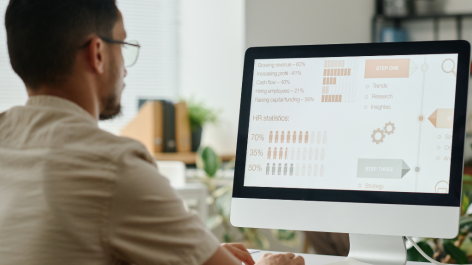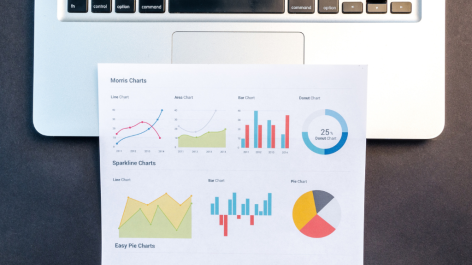Choosing the right software for your business operations isn't easy. You might have heard about ERP and resource planning software—but working out which one you actually need? That's where things get complicated.
You know what we often see? Companies investing in complex ERP systems when they really just need effective resource planning, or vice versa. By the end of this article, you'll understand exactly what each type of software does, who it's for, and most importantly—which one your business actually needs.
What is ERP software?
Enterprise Resource Planning (ERP) software connects every resource from your finances and supply chain to HR and customer relationships—all in one place.
It handles core business processes like managing your company's finances, tracking inventory, processing orders, and overseeing manufacturing. Most ERP systems also include features for human resources, customer relationship management, and supply chain oversight.
But here's what you need to know about ERP systems: they're complex. While they offer comprehensive coverage of business operations, that breadth comes with significant costs—both in terms of money and time. A typical ERP implementation can take anywhere from six months to two years, with prices starting in the hundreds of thousands.
Who typically needs ERP software? Manufacturing companies, large retailers, and businesses with complex supply chains often find ERP systems essential. For example, if you're managing inventory across multiple warehouses while coordinating international shipments and tracking raw materials—an ERP system makes sense.
The real strength of ERP lies in its ability to handle physical goods and complex financial operations. If your business revolves around producing, storing, or moving products, ERP software might be exactly what you need.
Just remember, bigger isn't always better. While ERP systems are powerful, they might be overkill if your primary focus is managing people and projects rather than products and inventory.
What is resource planning software?
Unlike the all-encompassing approach of ERP systems, resource planning software, like Retain, zeros in on optimising your workforce and project delivery. It's built specifically for businesses where people—not products—are the main asset.
In short, resource planning software helps you answer questions like:
- Who's available for this project?
- Do we have the right skills in our team?
- Are we using our people effectively?
These insights directly impact your bottom line, especially when you're managing billable hours and project deadlines.
Resource planning software handles everything from resource scheduling and capacity planning to skills matching and utilisation tracking. For example, Retain's AI-powered matching can quickly identify the best person for a project based on their skills, availability, and past performance. Something that would take hours to do manually.

The implementation process is refreshingly straightforward too. While ERP systems often take months or years to set up, resource planning software can be up and running in weeks. Plus, with interfaces designed to feel familiar (Retain uses an Excel-inspired design), your team can start using it effectively almost immediately.
Cost-wise, you're looking at a much more flexible investment. Most resource planning solutions offer scalable pricing models that grow with your business, rather than requiring massive upfront costs.
The real value comes from the insights you get. Want to know if you're understaffed for upcoming projects? Need to track billable utilisation? Looking to improve project profitability? That's exactly what resource planning software is designed to tell you.
Key differences: ERP vs resource planning software
Choosing between ERP and resource planning software comes down to understanding where each solution excels. While both types of software help manage business operations, they serve fundamentally different needs.
You might be wondering exactly how they stack up against each other. Here's a detailed breakdown of the key differences:

Looking at these differences, it's clear that ERP and resource planning software serve distinct purposes. While ERP systems excel at managing physical products and complex financial operations, resource planning software shines in optimising your most valuable asset—your people.
Of course, some businesses might need both. A large consulting firm with a product division, for instance, could benefit from an ERP system for their product line while using resource planning software to manage their consulting teams. But for most organisations, choosing the right specialist tool will deliver better results than a one-size-fits-all approach.
The key is to match the solution to your specific business challenges. That's why in the next section, we'll look more closely at exactly when to choose each type of software.
When to choose ERP software
Let's be clear about who really needs ERP software. It's a powerful tool, but it's not always the right answer for every business challenge.
ERP software makes perfect sense if you're dealing with physical products and complex supply chains. For instance, if you're a manufacturer tracking thousands of parts across multiple warehouses, or a retailer managing inventory across hundreds of stores, an ERP system could be essential for your operations.
Here's when ERP software is likely the right choice:
🟢Your business handles physical inventory. If you're tracking stock levels, managing warehouse locations, and coordinating shipments, ERP systems excel at this kind of complexity.
🟢You need integrated financial management. When your business requires sophisticated accounting across multiple entities or currencies, ERP software provides the comprehensive financial oversight you need.
🟢Your supply chain is complex. For businesses coordinating with numerous suppliers, managing multiple warehouses, or handling international logistics, ERP systems offer the detailed control required.
🟢You're running manufacturing operations. If you're converting raw materials into finished products, ERP software helps track costs, manage production schedules, and maintain quality control.
But here's the thing—if your business is primarily service-based, or if you're mainly focused on managing people and projects, an ERP system might be overkill. You'd likely be paying for a lot of features you'll never use.
Think about cost too. Beyond the initial investment (which can easily run into six figures), you're looking at significant ongoing expenses for maintenance, updates, and training. Plus, you'll likely need dedicated IT resources to manage the system.
When to choose resource planning software
Professional services firms, take note. Resource planning software is built specifically for businesses where people and their time are the primary drivers of revenue.
You'll know you need resource planning software if you're juggling multiple projects, trying to match the right skills to client needs, and tracking billable hours—this is exactly what resource planning software is designed to handle.
Here are the clear signs that resource planning software is right for your business:
🟢Your revenue depends on billable hours. If you're tracking time against projects and need to maximise billable utilisation, resource planning software gives you the visibility you need. For example, Retain's utilisation tracking helps identify both under and over-utilisation before they impact project delivery.
🟢You manage a flexible workforce. With hybrid working now standard, you need tools that can handle complex scheduling across different time zones and working patterns. Modern resource planning software makes this straightforward.
🟢Skills matching is crucial. When you need to quickly find someone with specific expertise—say, a senior auditor with healthcare experience—resource planning software can identify the right person in seconds rather than hours of manual searching.
🟢Project forecasting matters to your business. If you need to predict resource needs months in advance or spot potential capacity issues early, resource planning software provides these insights automatically.
The implementation timeline matters too. Unlike ERP systems, resource planning software can be up and running in weeks, not months or years. Plus, with familiar interfaces (like Retain's Excel-inspired design), your team can start using it effectively almost immediately.
A key advantage? The cost. Resource planning software typically offers flexible pricing models that scale with your business. You're not locked into massive upfront costs or lengthy contracts.
➡️See more: Resource scheduling software: Benefits, features, and how to choose
ERP software vs resource planning software: Making the right choice
Selecting the right software comes down to understanding what your business really needs—not just today, but for your future growth too. Let's make this decision simpler.
Start by asking yourself these key questions:
⏹️What's your primary business model? If you're selling services and expertise, resource planning software is your best bet. If you're manufacturing or distributing products, ERP might be the way to go.
⏹️How quickly do you need to see results? Resource planning software can start delivering value within weeks. If you opt for Retain, for instance, you could be optimising your resource allocation before the end of your next billing cycle. ERP systems, while powerful, typically take months before you see any real benefits.
⏹️What's your budget looking like? Think beyond the initial price tag. Consider training costs, implementation time, and how much internal resource you can dedicate to the project. Resource planning software typically needs minimal IT support, while ERP systems often require a dedicated team.
Here's an easy way to think about it:
If these are your priorities:
- Managing people and projects effectively
- Maximising billable utilisation
- Quick implementation and ROI
- Flexible scheduling and skills matching
- Cost-effective solution
Then resource planning software is your answer.
But if you're focused on:
- Complex inventory management
- Manufacturing processes
- Multi-entity financial consolidation
- Supply chain oversight
- Integrated business processes
Then you might need an ERP system.
Wrap-up
At the end of the day, choosing between ERP and resource planning software shouldn't be complicated. It's about picking the right tool for your needs.
If you're running a service-based business where your people are your biggest asset, resource planning software is the clear choice. It's faster to implement, more cost-effective, and specifically designed to help you manage and optimise your workforce.
For those managing physical products, complex supply chains, or manufacturing operations, ERP systems offer the comprehensive functionality you need—just be prepared for a longer implementation and higher costs.
Want to see how resource planning software could work for your business? Book a demo with Retain today. We'll show you exactly how our solution can help optimise your resource management, improve project delivery, and boost your bottom line.


